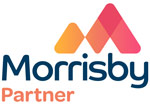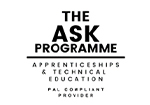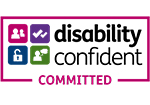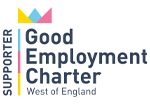Blog

How to Find Work Experience
May 2024
Why work experience is important
Work experience is a valuable aspect of career development. It allows you to gain practical insights into a specific role, organisation, or career path. It is essential for anyone, regardless of age or career stage and provides material for your CV that can help you stand out in applications for courses, training, and jobs.
Work skills can be divided into two categories hard skills (also known as technical skills) and soft skills. A work placement will allow you to develop a well-rounded skillset consisting of both.
What are hard skills?
Hard skills are specific abilities and knowledge that you acquire through education, training, and experience. These skills often relate directly to a specific job or industry. They help you perform job-specific tasks and are essential for certain positions. They can include proficiency in a foreign language or programming language or technique.
What are soft skills?
Soft skills are general traits not specific to any job and are often termed as interpersonal skills frequently transferrable across most industries, jobs, and workplaces. Soft skills are focused on abilities such as productivity, initiative, creativity, communication, or organisation. There are six main types of soft skills: communication, collaboration, work ethic, critical thinking, leadership and having a positive attitude.

Work Experience: How to Find it
Getting some relevant work experience in an area that aligns with your interests can help to refine your ideas and enhance any future applications to university, apprenticeships or jobs. Remember to include your work experience placement on your CV as this will distinguish you from other candidates and show that you are wanting to develop yourself and that you are willing to actively engage in acquiring the necessary skills for the workplace.
There are a number of ways you can find work experience:
- Talk to your family and friends to find out what jobs they do and ask if it is possible to work shadow them or if you can approach the company they work for with regard to a possible work placement.
- Make a list of companies in the career area that you wish to gain more knowledge and phone or email them to introduce yourself and enquire about a placement.
- Do some virtual work experience online to give you an idea what various roles in companies are about in the job sector you are interested in.
Student Ladder Work-experience
Springpod Virtual Work Experience
For more information about how to find work experience and for sector specific work experience programmes see our guide: Work Experience
Other sources for finding work placement include:
Prospects: Jobs, work-experience and internships
Student Ladder: Year-12 Work experience opportunities
V Inspired: Volunteering roles
Do It: Volunteering roles
Prince’s Trust: Help for young people/get work experience
Barclays Life Skills: Work experience resources
Law advice: Law work experience
How to Prepare
To get the most out of your work experience you will need to be proactive. Preparing ahead of your work experience will enable you to get the most out of your placement. Think about how you will use the experience going forward to build your knowledge of the world of work and your own personal working style and work environment preferences. Here are some tips on how to prepare yourself:
Prepare/update your CV - It is important to keep your CV current even if you have not done much work experience to-date. Information to include:
- GCSE subjects and grades and any other exam achievements.
- Skills and achievements: this is where you talk about any foreign languages you speak or IT packages you can competently use. The skills that you list should be relevant to the job.
- Personal profile statement to highlight your key attributes.
- Hobbies and interests.
- Information about any club memberships.
- Any virtual work experience you have done.
- References – these can be family friends, tutors or an adult who can give you a character reference. It cannot be a close family member such as a parent or older sibling.
The template below is an example layout of what your CV could look like.

Write a cover letter or email - Even if you have called the employer, you will likely need to follow up your enquiry with written communication and in many instances an email or letter will be the first point of contact from you to the employer. These are things to include:
- Who you are
- What kind of job you're looking to work shadow or experience
- Why you are approaching this company/your interest in what the company does
- Your future career goals
- Your relevant skills and education
- Your previous work experience, if applicable
During your work experience
Make a good first impression - First impressions really do count. Make sure you turn up on time, are suitably dressed (if in doubt, better to go smarter), and are raring to go. If you show you’re friendly, reliable, and competent from the get-go, chances are more opportunities will come your way.
Get to know people - Greet everyone you meet with a smile and try and introduce yourself to everybody you'll be working with. Don't be afraid to ask people about their roles and how they got to where they are now – they'll be flattered!
Be organised - While you’ll have guidance during your internship, you can’t expect to be spoon-fed the whole time. Listen carefully to instructions and note down important meetings, dates, and deadlines to help manage your time effectively.
Get involved - It might sound obvious, but the more you get stuck in, the more experience you'll gain. Be enthusiastic about any task – big or small – and use your initiative to go above and beyond what's asked of you.
Ask questions - There’s no shame in asking for clarification if you're not sure what you're doing – in fact, employers will respect that you have the guts to ask. But be resourceful – think twice about asking a question that could be answered with a quick Google search.
Make suggestions - If you think you've got a valuable comment to add, don’t be afraid to speak up. Employers love people with ideas, and your contribution – whether your idea is taken up or not – will be appreciated.
Offer to help - When you speak to people, ask after their current projects and emphasise that you’d like to get involved. Showing you're approachable and keen will ensure they think of you when they need an extra pair of hands.
Make notes - Jot down any useful information about particular tasks you've worked on and skills you've picked up. That way you’ll have a record of everything you need to take away from your time there.
Ask for feedback - Try and gather informal feedback from your supervisor as you go along, rather than just waiting for a report at the end – it gives you a chance to improve throughout your time there, and shows that you care that you're doing a good job.
Reflect on your work experience - It’s important to be honest with yourself when reflecting on your placement. If you didn't particularly enjoy it, you can at least learn about what you enjoy doing and the skills you have and want to build on. Even if the only thing you take away from the experience is knowing you don’t want to work in that industry, it’s been useful!
Conclusion
Whether you have decided on your career path or are still exploring ideas, doing work experience will help develop your skills that will prepare you for the workplace. Work experience will also provide valuable material for your CV and for your personal statement if you are applying to university.
At FutureSmart Careers, our mission is to provide careers guidance, knowledge and resources so that young people can make confident and informed choices about their futures.
If you would like careers guidance or support for students in your school or college, please get in touch at: enquiries@futuresmarcareers.co.uk.
Sources:
Images by Freepik



 0330 311 9509
0330 311 9509 







